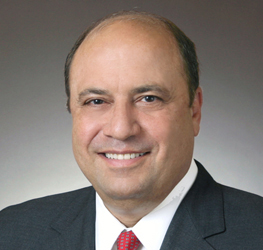Florida Legislature: Budget Issues to Dominate the Regular Legislative Session
The Florida Legislature’s 2009 regular session convenes on Tuesday, March 3, 2009. With the state’s revenues approximately $5 billion short of the amount needed to continue current expenditure levels in the 2009 – 2010 fiscal year, spending and revenue issues are expected to overwhelm consideration of other matters during the 60-day session.
Governor Charlie Crist has proposed a $66.5 billion budget that depends on $4.7 billion in federal stimulus funding, fee increases, and university tuition increases to cover the shortfall. Senate leaders may object to some of the stimulus funding. Senate President Jeff Atwater (R-North Palm Beach) has suggested that acceptance of the stimulus money could create a “lost opportunity” if members of the Legislature decide that the stimulus relieves them of the “need to look at other alternatives right now because we’ll come out of it by then.” Specifically, Sen. Atwater said that additional federal money for roads or Medicaid would be welcome, but that the stimulus plan could lead to a permanent increase in the size of state government that would be supported only temporarily by federal money.
Both the Florida Senate and the Florida House may be sympathetic to tax increases or elimination of some sales-tax exemptions. The most widely discussed changes are an increase in the cigarette tax of up to $1 per pack and repeal of the sales-tax exemption for bottled water, which could generate $42 million in additional revenue.
Historically, the House has been more hostile to tax increases. House Finance & Tax Council Chair Ellyn Bogdanoff (R-Fort Lauderdale) has set a goal of identifying $1 billion in savings through cuts and reorganizations. However, she also has identified 51 sales-tax exemptions for consideration by the Finance & Tax Council. Some of the larger exemptions to be reviewed include charter fishing boats ($71 million), eyeglasses and other corrective lenses ($46 million), bottled water ($42 million), and rental of agricultural property ($30 million).
The budget shortfall could affect legislators’ consideration of the gaming compact between the state and the Seminole Tribe of Florida. The Seminole Tribe and other supporters of the compact argue that the compact would generate $288 million in revenue to the state in the 2009 – 2010 budget year, with a guarantee of at least $100 million a year for the next 25 years. Proponents also argue that the casino gaming authorized under the compact would generate at least 45,000 new jobs after full development of the planned casinos. Pari-mutuel facilities, including South Florida facilities that operate slot machines, object to competition from the Seminole Tribe’s casinos and are seeking a reduction in their tax rate or limits on the Seminole Tribe’s exclusive authority to operate blackjack games in Florida.
Politics: Lieutenant Governor Jeff Kottkamp Under Fire
On February 23, 2009, a Pinellas County political activist filed a complaint against Lt. Gov. Jeff Kottkamp with the State of Florida Commission on Ethics. David Plyer, who previously filed an ethics complaint against then-House Speaker Ray Sansom (R-Fort Walton Beach), alleged that the lieutenant governor charged the state for personal travel, including 365 flights and an unspecified number of road trips between his office in Tallahassee and his home in Fort Myers.
Florida newspapers have been reporting for several weeks that Lt. Gov. Kottkamp has used state airplanes and vehicles for travel between Tallahassee and Fort Myers. Some of the news reports also have alleged that the trips to Fort Myers often occur on weekends and often involve little or no work that could be considered official duties of the lieutenant governor’s office. In addition, media also have reported that Lt. Gov. Kottkamp and family members have used a Florida Highway Patrol airplane for personal travel. Lt. Gov. Kottkamp has given the state $10,436 in reimbursement for travel on state planes by members of his family.
Sen. Mike Fasano (R-New Port Richey), one of Gov. Crist’s strongest legislative supporters, has said with respect to Lt. Gov. Kottkamp’s travel expenses, “There’s no question that the public perceives this as wrong ….Everyone needs to tighten the reins on spending and travel.” Rep. David Rivera (R-Miami), Chair of the House Full Appropriations Council on Education & Economic Development, questioned Florida’s need for a lieutenant governor, stating, “The lieutenant governor job is the most irrelevant job in state government. This may be the time to look at following the lead of other states and eliminating the post to save taxpayers money, particularly during these difficult budgetary times.”
Florida did not have a lieutenant governor under the 1885 version of the Florida Constitution. The post was created by the 1968 constitutional revision.
Governmental Organization: Gov. Crist May Propose Merger of Two Health Agencies
According to media reports, Gov. Crist is preparing to recommend a merger of Florida’s two main health agencies, the Florida Department of Health (DOH) and the Agency for Health Care Administration (AHCA). The primary responsibilities of DOH include regulation of health professionals, prevention of disease, promotion of healthy lifestyles, and providing health care. AHCA’s primary functions include regulation of hospitals and other health care facilities and administration of Medicaid.
Both agencies were originally part of the old Department of Health and Rehabilitative Services (HRS). AHCA was split off in 1992 and was originally the state’s health care purchasing agency. DOH was created when the Legislature broke up HRS in 1996 and incorporated health professional regulation functions from other agencies.
Key legislators, including Sen. Durrell Peaden, Jr. (R-Crestview), Chair of the Senate Committee on Health and Human Services Appropriations and Sen. Nan Rich (D-Sunrise), have expressed doubt that a merger would provide any significant savings or efficiencies.
Property Insurance: Crisis Prompts Wide Range of Proposals
Florida’s property insurance crisis has worsened dramatically since the last regular session of the Florida Legislature adjourned in May 2008. Among other things, the Florida Hurricane Catastrophe Fund announced that it would not be able to sell enough bonds to honor fully its reinsurance obligations to Florida residential insurers in the event of a major hurricane. State Farm Florida Insurance Company announced that it was pulling out of the Florida property insurance market, and a state task force found that the state-created Citizens Property Insurance Corporation was charging actuarially unsound rates. More recently, Encompass Floridian Insurance Company, a member of Allstate Insurance Group that writes approximately 11,000 policies in Florida, announced that it also was pulling out of the market.
A variety of proposals have either been the subject of legislative discussion or filed as bills, including:
- A proposal for the state to write all hurricane coverage through the Florida Hurricane Catastrophe Fund, with the coverage administered by private insurers.
- A proposal to gradually raise Citizens Property Insurance Corporation rates. The Citizens Property Insurance Corporation Mission Review Task Force recommended three rounds of 10-percent increases.
- A proposal to prohibit a property insurer from nonrenewing more than two percent of its policies in any year.
- A proposal to reduce the amount of reinsurance provided by the Florida Hurricane Catastrophe Fund, with the goal of making the fund’s promises more closely match its ability to pay.
- Revisions to the Florida Commission on Hurricane Loss Projection Methodology to make it more sensitive to political considerations.
Legislators have expressed widely divergent views. To Sen. Fasano, “this is not the time, during an economic crisis, when we should be talking about raising rates of any kind on anyone.” Sen. JD Alexander (R-Winter Haven) says that the state’s economy is not strong enough to bear even half of Florida’s windstorm risk, but he also says that the property insurance crisis might be “the most dangerous issue facing Florida. It’s the single biggest issue that could destroy our real estate market and be even more destructive to our economy than the current budget situation.”
Public Affairs News Alert is part of our ongoing commitment to providing up-to-the-minute information about pressing concerns or industry issues affecting our clients and our colleagues. If you have any questions about this alert or would like to discuss these topics further, please contact your Foley attorney or any of the following individuals:
|
Marnie George Michael P. Harrell Robert H. Hosay |
Jonathan P. Kilman Thomas J. Maida Leonard E. Schulte |

